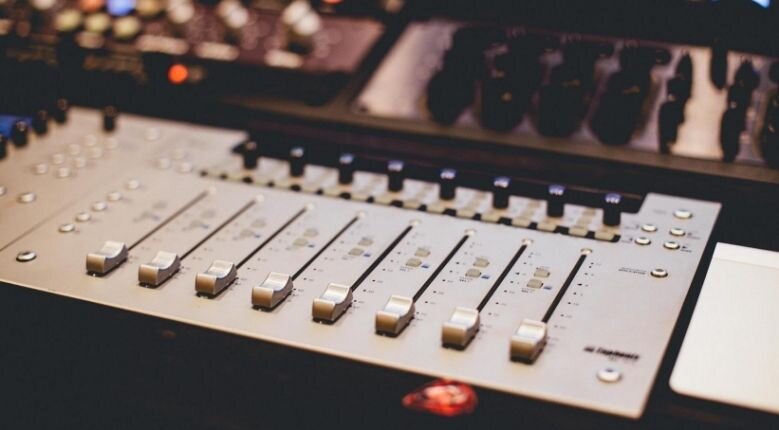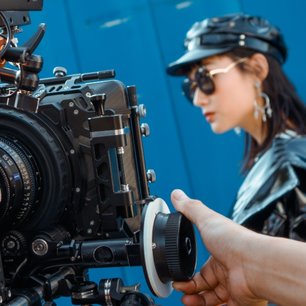It’s hard to imagine today’s entertainment industry without on-demand content. Streaming platforms seem to pop up from every provider, whether we’re talking about film, music or even theatre. This makes content that you ‘have to wait for’ come across as a bit passé. But while there are still those who tune in to the television or who prefer the live experience when it comes to theatre, radio is a whole other ballgame — given the easy accessibility of music everywhere.
Where is radio’s current place in today’s on-demand content culture? We visit the world of radio with radio personalities, Presh Ong, a.k.a. DJ Alice, and Bea Layague-Uy, better known as MOR Bea, below.
Entering a career in radio
Presh and Bea started their career in the industry around the 2010s when on-demand platforms were already gaining traction. For Presh, it has always been her dream to be a radio deejay, so once she got a chance to audition and send in demos to studios, she seized the opportunity. She was in her last term in college when she got an offer from Wish FM 107.5, a then-budding radio station in the Philippines, and ended up doing shows in the morning and attending her classes at night.
"I just celebrated my sixth year in the industry and with Wish last August 10," she beamed.
Meanwhile, Bea was fresh out of college when she got tagged by her cousin to a radio jock search as a chaperone almost 10 years ago. She had no plans to audition but ended up getting the job after one of the producers asked her to try out.
Looking back, she felt amused: "My cousin didn’t make it. I think she still resents me a little up to this day."
The radio industry in the last decade
While their experience in radio is still fresh compared to those in the industry for over decades, Presh and Bea expressed that the changes from when they started to how it is now are evident. In hindsight, it’s even more of an emotional whiplash compared to those of veterans in the industry, considering that they are at the point when radio’s relevancy is constantly being challenged today.
"In the internet age and with the emergence of digital streaming platforms, podcasts, and social media sites, radio had to evolve and keep up or risk getting left behind," Presh noted. "Through incorporating digital elements and/or supplements and creating other extensions/content to support traditional radio programming, radio has evolved into a multi-platform medium. The prime example would be how our station introduced the innovation of an ‘FM station on wheels’ that brings music closer to listeners."
For Bea, a decade’s difference meant that the radio industry has to adapt to changes the internet brought in, with "social media somehow providing a tangible number of listeners and giving a sneak peek on the lives of the target market."
She added: "Radio is not just on radio anymore; it’s on social media, it’s on different streaming platforms, it’s even on TV. It’s like, for a radio station to become successful, it has to have a massive following on the internet. It can be used to determine the needs and wants of the listeners and those of the advertisers."
Understanding the appeal of radio in today’s on-demand culture
Despite all the adjustments that had to be done, they still firmly believe that radio’s appeal is still very much different from the nature of on-demand content.
"Personally, I think radio’s main edge would be three things," said Presh. "First, nostalgia. There’s just something about the muffled sound of it, the feeling of waiting for your favourite song to play on-air or the adrenaline you feel when your name gets read out. That and all the other elements of your favourite radio shows that hit close to home.
Second, a bigger reach. Radio stations have their own transmitters and can reach more places that the internet can’t.

Even in the age of on-demand content, radio's relationship with its audiences still proves to be strong. (Photo from Goran Ivos via Unsplash)
Lastly, the relationship that it has formed with listeners. Radio has been around for a very long time and listeners have made it a part of their daily routine to turn on their radios first thing in the morning and fall asleep to it during the night. Radio programming has an underlying formula that has been tried and tested, tailor-fit for listeners."
As for its difference with podcasts or streaming services, Bea highlighted: "The key with radio is its mix of music and free service. Radio provides music for free, it provides entertainment for free, it’s real-time and It does not require an internet connection. Radio can reach more people and therefore, it can serve more people. It can influence more people from different walks of life. And advertisers still prefer traditional media more than online platforms."
An (air)wave of challenges
Beyond just industry challenges, another big hurdle they have to constantly overcome professionally is learning to present themselves in today’s more ‘exposed’ nature of radio. With radio being available in other platforms beyond just the airwaves, sounding good also ties in with looking good and behaving well. They’re no longer just faceless personalities but rather ambassadors for their own stations and programs, too.
"What’s your unique identity as a jock? How will you differentiate yourself from other jocks? What more can you do aside from talking? How many fans do you have? Why is your program not rating? These are just some of the questions I had to constantly answer in my 10 years of being a radio personality," shared Bea.

Along with industry challenges come professional hurdles for these radio jocks. (Photo from Jonathan Velasquez via Unsplash)
"Not to mention the in-house drama. Oh boy! Working in a radio station is a lot like working in the showbiz industry. Miscommunication, jealousy, bizarre love triangles, all sorts of TV drama plots can happen," she humorously added.
So how does one keep themselves focused and determined amid these challenges? Presh explained: "I made it my goal to use my platform for a bigger purpose and send out positive and substantial messages. You should just genuinely love and enjoy what you do, be true to yourself and what you stand for, then drown out all the noise. Never lose your sense of self and when things get hard, remind yourself why you pursued this in the first place."
The future of radio in the entertainment industry
"The radio industry today has a good and bad side," Bea concluded. "It’s good because the jocks can communicate well with the listeners. It’s bad because social media somehow changes the nature of the radio industry in a manipulative way. It dictates how it should run, what music to play, how the radio jocks should be."
Still, Presh confidently said: "I think this is just the start for radio. Stations would be pushed to go out of their box and innovate — to come up with ways to compete and create content that transcends traditional radio."

Will radio tap out of the industry any time soon? Doesn't look like it. (Photo from Abigail Keenan via Unsplash)
Both jocks expressed that even if given the chance to jump ship, they wouldn’t have it any other way. The relationship that they have built with radio as an industry — along with their audiences — summarise why and how the industry continues to hold on for so long despite on-demand content always looming over it. And, in reality, this idea is not just limited to the radio industry.
If you think about it, the same sentiment goes for every other entertainment platform in this day and age. Even social media platforms get phased off by bigger players at a flicker of a moment that it has actually become a typical occurrence at this point. What’s trending now may be phased out soon after; yet traditional media still surprisingly stands, some more than others, criticisms of being bygones. This proves that relevancy is every industry and platform’s playing field — and it seems like radio isn’t planning to tap out of the game just yet.
A career change during the pandemic? Here's what it's like.
Comments, questions or feedback? Email us at [email protected].








